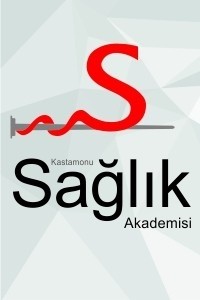EXPERIÊNCIAS NO LOCAL DE TRABALHO DE INDIVÍDUOS LGBTQ+ EM PORTUGAL: UM ESTUDO PILOTO DE MÉTODO MISTO
LGBTQ+, Discriminação Social, Satisfação no Trabalho, Ambiente de Trabalho, Portugal
WORKPLACE EXPERIENCES OF LGBTQ+ INDIVIDUALS IN PORTUGAL: A MIXED-METHOD PILOT STUDY
LGBTQ+, Social Discrimination, Job Satisfaction, ; Work Environment, Portugal,
___
- Reference 1 ................................
- Yayın Aralığı: Yılda 3 Sayı
- Başlangıç: 2016
- Yayıncı: Esra DEMİRARSLAN
VISITA ESTENDIDA EM UMA UTI GERAL NO CONTEXTO PANDÊMICO: RELATO DE EXPERIÊNCIA
Jamily CERQUEİRA ETİNGER ALMEİDA NOVAİS, Ana Paula MALHEİROS VİLAS BOAS DE SÁ, Cláudia JESUS PİNHEİRO, Mariá LANZOTTİ SAMPAİO, Nília Maria BRİTO LİMA PRADO, Taisa BARRETO CURCİNO LEÃO
IMPACTO PSICOLÓGICO GERADO NOS PROFISSIONAIS DE SAÚDE ATUANTES NO COMBATE AO CORONAVÍRUS
Ana Lúcia BARRETO DA COSTA, Adriana AVANZİ MARQUES PİNTO, Magali Aparecida ALVES DE MORAES, Rafael Silvério DE MORAES, Elza De Fátima RİBEİRO HİGA
SAÚDE MENTAL DA POPULAÇÃO IDOSA EM TEMPOS DE PANDEMIA
Andreia CERTO, Odete NOMBORA, Eva MENDES
Sandra FİLGUEİRAS DE OLİVEİRA, Eleonora SOUZA SİLVA, Joyce Lorena MAİA BARCELOS, Anna Rita SANTOS NORBERTO, Lilian De Fatima ZANONİ NOGUEİRA, Fabiana Caetano MARTİNS SİLVA E DUTRA
Natália COUTO DE ALMEİDA, Andreza DE MORAİS SİLVA, Vera Lúcia CHALEGRE DE FREİTAS
ACOLHIMENTO PSICOLÓGICO COMO DISPOSITIVO DE CUIDADO E PROMOÇÃO DE BEM ESTAR
Graziela De Fátima SOUZA CARMO
QUALIDADE DE VIDA RELACIONADA COM A SAÚDE ORAL EM ESTUDANTES DO ENSINO SUPERIOR
Maria José ALMENDRA RODRİGUES GOMES, Olga Alexandra MOURA RAMOS, Ana Maria NUNES PORTUGUÊS GALVÃO
VESTÍGIOS COMUNICACIONAIS DE CONSUMO INFORMACIONAIS SOBRE PANDEMIA E COVID-19 POR PESSOAS COM SURDEZ
Sônia Maria QUEİROZ DE OLİVEİRA, Carlos Alberto DİAS
COVID-19 E A PESSOA COM PERTURBAÇÃO OBSESSIVO-COMPULSIVA
Mariana Tomé PEREİRA ALFAİATE, Laura CATARİNO GONÇALVES, Rita ALVES PİNHO FARİA, Lídia Susana MENDES MOUTİNHO, Olga Maria MARTİNS DE SOUSA VALENTİM
Talita WASSMUTH, Elaine BECHER SANTOS, Eduardo Manoel DE LARA, Débora MELO MAZZO, Maurício ZADRA PACHECO, Juliana CARVALHO SCHLEDER
